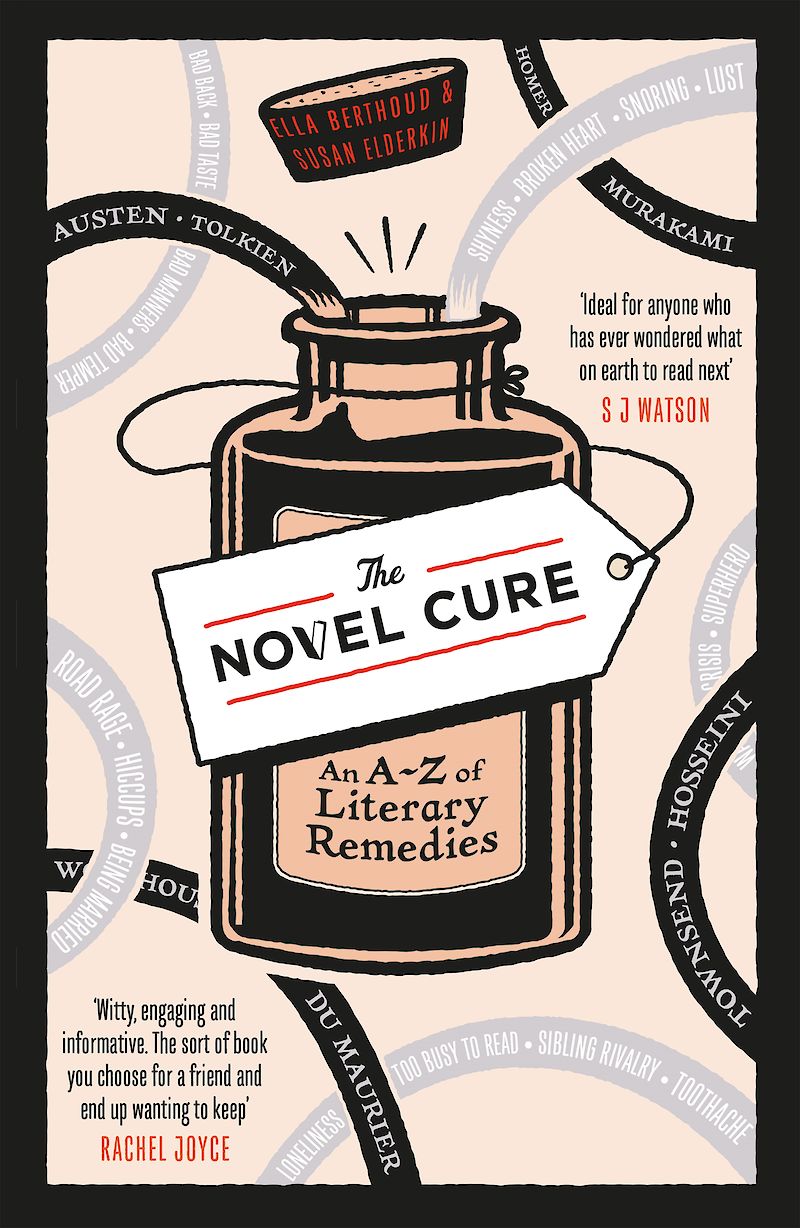No products in the cart.
The Novel Cure
Whatever ails you, from the psychological to the physical, spiritual and beyond, sometimes the best cure can come in the form of a book. While self-help books have become popular in recent decades, people have been using literature as a cure-all for centuries. Bibliotherapy involves the reading of specific texts with the purpose of healing, a key concept of library science, and was used as far back as ancient Greece. The oldest known library motto in the world was inscribed above King Ramses II of Egypt’s book chamber and read, “the house of healing for the soul.” Since then, bibliotherapy has been used in psychiatric institutions, military hospitals, and many other places, all over the world. Today, you can even book an appointment with a bibliotherapist, and they will “prescribe” reading material relevant to a client’s current life situation and the issues they may be facing.

With their witty and informative book The Novel Cure, authors Ella Berthoud and Susan Elderkin bring bibliotherapy to the general public with an alphabetical medical handbook that offers novel cures for everything from a broken leg to a broken heart. Some of the treatments will lead to a complete cure, while others will simply offer solace, showing you that you are not alone. All will offer the temporary relief of your symptoms due to the power of literature to distract and transport.
For example, for anger, Berthoud and Elderkin recommend Ernest Hemingway’s The Old Man and the Sea, because by immersing yourself in the simple calming prose of this story, you too will rise above your emotions like the protagonist. For Monday morning blues, they suggest Virginia Woolf’s Mrs. Dalloway and her insatiable appetite and love of life. For selfishness, the cure is Ken Kesey’s One Flew over the Cuckoo’s Nest and its reminder to pay more attention to those you care about. There are numerous other cures for everything from the serious (fear of death, being in the hospital, loss of hope) to the comical (baldness, fear of dinner parties, being locked out of your house). They also provide reading lists for every decade of life, and suggestions for common reading ailments such as being too busy to read or forgetting what you’ve read the second you finish a book. If you’re ever unsure of what to read, The Novel Cure offers excellent suggestions for whatever mood you’re in or time of life you’re experiencing.
With mother’s day next weekend, two books Berthoud and Elderkin recommend on motherhood are Barbara Comyns’ Our Spoons Came from Woolworths and Allison Pearson’s I Don’t Know How She Does It. Other excellent choices are A Letter to My Mom by Lisa Erspamer and Well-Read Women: Portraits of Fiction’s Most Beloved Heroines by Samantha Hahn.






